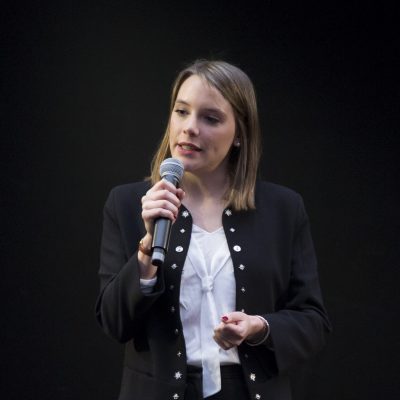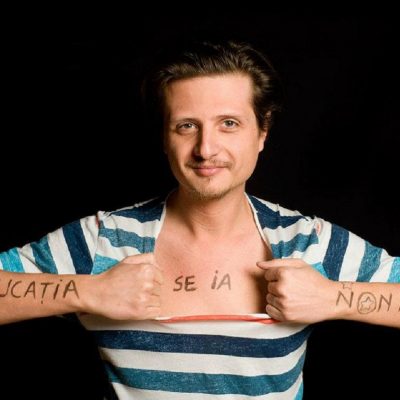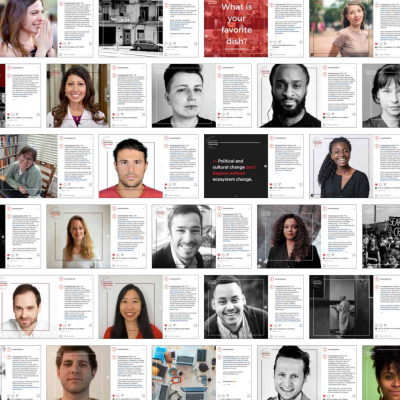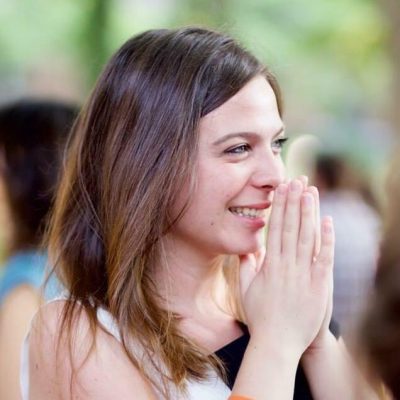Article
“In the twelve upcoming months, I want to help as many rural youth as possible realize that they matter, have a voice, and have power–and that the world will be a better place if they use it massively!”
Statistics show that 88% of rural youth aged 18-24 years old did not vote in the last French elections. While media pundits chastize young people on TV for “failing in their civic duty,” Landecker Democracy Fellow Lumir believes that it is time for innovative grassroots get out the vote initiatives (GOTV).
Lumir’s Motivation
Contrary to public belief, research has shown that most youth abstention is not born out of disinterest in politics but out of two main perceptions:
- “My vote won’t make a difference.”
- “I do not feel legitimate to vote because I don’t understand what is at stake with this election.”
It is important to note that, while there is French research and data on electoral absenteeism, there is no research on efficient GOTV initiatives (even less so focusing on rural youth). Lumir’s project aims to fill this gap and to foster social cohesion in rural communities by working with groups of diverse rural youth to help them brainstorm GOTV solutions through innovative formats and share those findings.
Lumir believes that we need to create collective spaces that allow our youth to both interact with experts and ask questions so they can engage in electoral politics. Then, once informed, they will be prepared to give their opinions. To do so, Lumir is hoping to recapture the spirit and methods of the French Citizen’s Convention on Climate. This initiative is the largest democratic innovation to have been implemented in France in recent years. Born out of the Yellow Vests movement, it aimed to prove that regular citizens, if informed and given a structured space, could craft relevant legislation on climate change.
Project Development
Building on this initiative through phase I of the project, Lumir wants to experiment with a format in which, over the course of a weekend, 15-25 year-old rural youth can truly engage with one another, learning and talking about their voting experience. These workshops will be developed with designers and facilitators to center peer-to-peer conversations, which (in Lumir’s experience as an organizer and an educator) foster active listening and trust. These kinds of opportunities are rare in rural areas where few grassroots civic projects are funded and youth mostly socialize around shared interests or identities (soccer, car customization, church, etc.).
Following the workshops, Lumir plans to initiate phase II by bringing together a group of leaders (identified during the workshops) to work on a communications campaign to share our recommendations in two formats.
- First, an online recommendations booklet, directed towards progressive organizations and parties, will help them understand youth vote better. Lumir is confident this will prove particularly relevant in this upcoming year, as we have both our presidential and congressional elections coming up.
- Second, the project could share the findings and recommendations through a social networks campaign catering to other youth. The goal is for this to be a conversation starter to build bridges with other youth communities and engage them on voting issues – particularly inner-city youth.
Updated December 2021.




